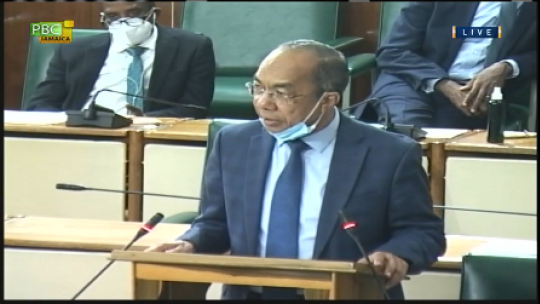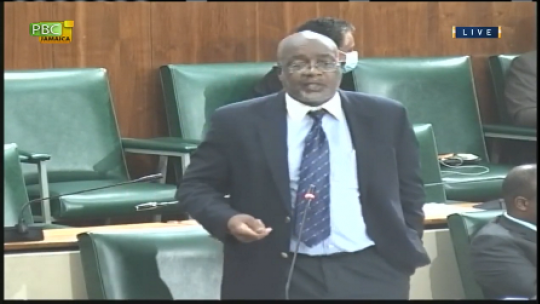.png)
An order which will boost the capacity of the security forces to monitor communication by criminals in certain circumstances was passed Tuesday night in the House of Representatives.
This will be done under the Interception of Communications Act.
It will allow designated individuals in the police force, the military and other investigative bodies to obtain real time information on persons involved in criminal activities, such as kidnappings.
The order was tabled by National Security Minister Dr Horace Chang who outlined who will be classified designated persons. They include the Chief of Defence Staff, the head of the military intelligence unit and the Commissioner of Police, the Assistant Commissioner in charge of the Narcotics Unit, Assistant Commissioner in charge of the National Intelligence Bureau, and the Director General of the Major Organized Crime and Anti-Corruption Agency.
Dr Chang argued that it was important to provide security agencies “with all the resources that are available, in order for them to effectively carry out their duties.”
He characterised as “real threats to society”, those criminal organizations involving “acts of extreme violence and activities such as kidnapping,” and asserted that “by approving these designates we will be improving the response capabilities of our security forces to effectively intervene in these life and death situations.”
Assurance
The measure was not opposed by the Parliamentary Opposition, but Fitz Jackson, Opposition Spokesman on National Security, sought an assurance from the National Security Minister that the order will not be abused or the privacy of law abiding Jamaicans breached.
Recognising that it “allows the state to intrude into private conversations, business conversations, conversations of all types,” he noted that “information in the wrong hands can be very dangerous.”
Dr Chang, in response, said the provisions of the Interception of Communications Act remain intact, reminding the House that in order to secure the right to intercept such information, the security forces must first go before a High Court judge and establish a legitimate case for doing so.
He cited kidnapping as a prime example of the the “extreme” or “specialised” circumstances in which such an order would be appropriate, given the need for “immediate information.”




.jpg)






 All feeds
All feeds







